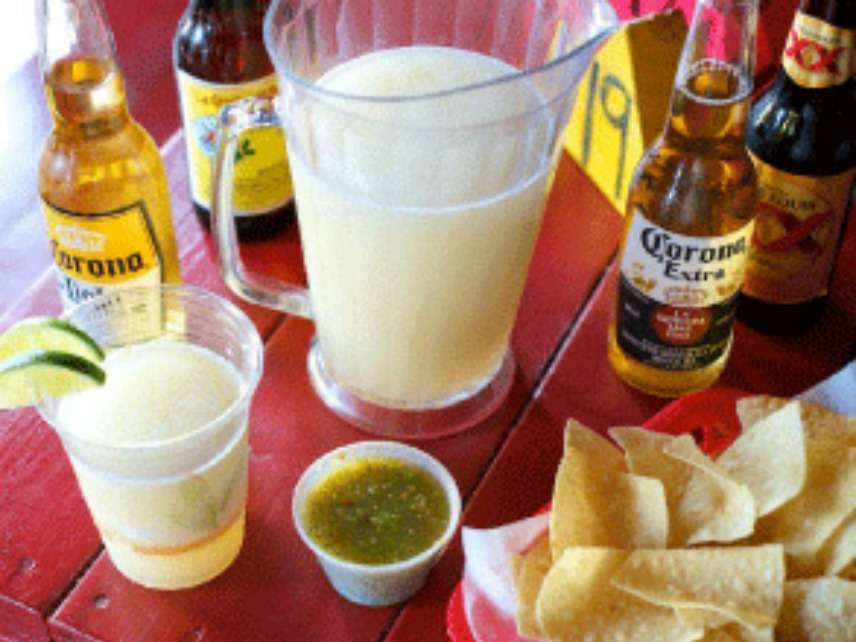Alabama Bans Margarita Pitchers, Declaring Them Adulterated
Regulators say six separate drinks are fine, but combining them in one vessel is a crime.

The Alabama Alcoholic Beverage Control Board (ABC) recently informed Will Haver, founder and CEO of the Taco Mama restaurant chain, that he was breaking the law by serving his customers pitchers of margaritas. That edict, which was accompanied by the threat of a fine up to $1,000 and up to six months in jail per pitcher, was based on a counterintuitive interpretation of a law that has been on the books for decades:
It shall be unlawful…for any person to fortify, adulterate, contaminate, or in any manner change the character or purity of alcoholic beverages from that as originally marketed by the manufacturer, except that a retail licensee on order from a customer may mix a chaser or other ingredients necessary to prepare a cocktail or mixed drink for on-premises consumption.
According to ABC General Counsel Bob Hill, mixing a single cocktail does not qualify as adulteration, but putting several in a pitcher does. The problem, as ABC spokesman Dean Argo explains it in an interview with R Street Institute Vice President Cameron Smith, is that the alcohol in a pitcher of mixed drinks tends to settle to the bottom. "The person who is poured the first or second drink may receive only a .25 to .5 ounce of alcohol," Argo tells Smith, "where a person receiving the third, fourth or even fifth pour may receive much more alcohol than mix."
I'm no chemist, but that explanation seems dubious to me. If the ingredients in a margarita separated, wouldn't the alcohol migrate toward the top, since it is less dense than water or lime juice? Perhaps what Argo means is that the first and second servings of a frozen margarita tend to contain more ice, which would reduce the alcohol content. But if the margaritas are served on the rocks (the way most of them seem to be served at Taco Mama, where "frozen" is one of a dozen varieties), melting ice would tend to make later servings weaker.
In any case, the ABC's reading of the law is outlandish, especially in light of the explicit statutory exception for mixed drinks. If six margaritas in separate glasses are not adulterated, pouring them into one vessel cannot make them so. The ban on adulteration is aimed at protecting consumers from being cheated or endangered by trickery behind the bar, not from getting exactly what they want, which for many Taco Mama customers is a pitcher of margaritas.
Pressing Argo on the ABC's logic, Smith asks whether it would be legal for a bar to sell a pitcher of margarita mix alongside six shots of tequila. "I can't [see] anything that would prohibit that," Argo says. "The patron would [be] able to tell exactly the amount of alcohol he or she is getting and the server/bartender would be able to know when the patron becomes overserved."
Smith is puzzled: "So the real danger is the alcohol settling in the pitcher, but that's only a problem if a bartender mixes it? If the patron does the exact same thing on the other side of the bar, then it's completely reasonable….You truly have to be overserved to buy that kind of nonsense."
Trying to impress upon Smith the hazards of tolerating margaritas in pitchers, Argo trots out a parade of horribles. "If one licensee is allowed to serve mixed drinks in a pitcher," he says, "then other licensees would have to be allowed to serve mixed drinks." That could include not only margaritas, Argo warns, but even rum and Coke. Who would want to live in such a world?


Show Comments (72)